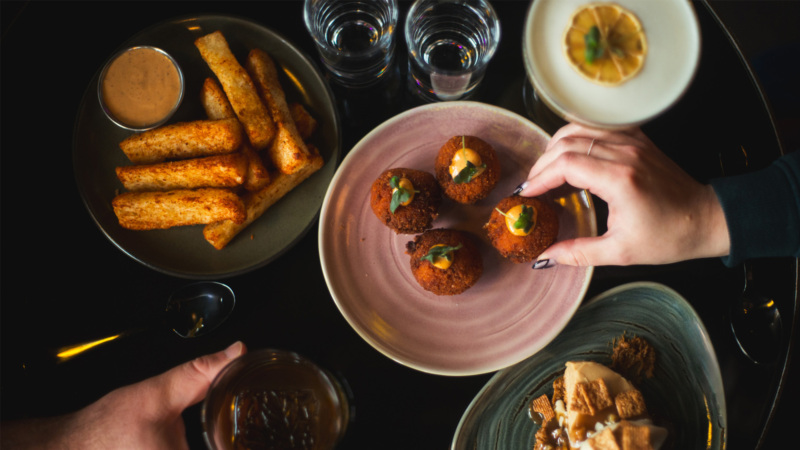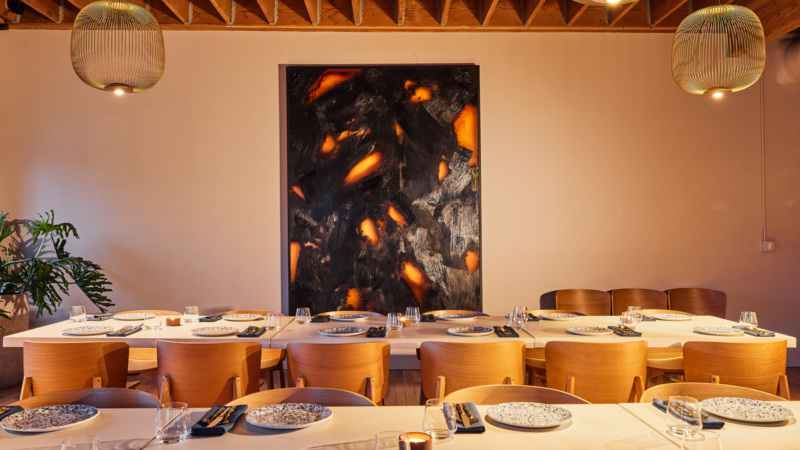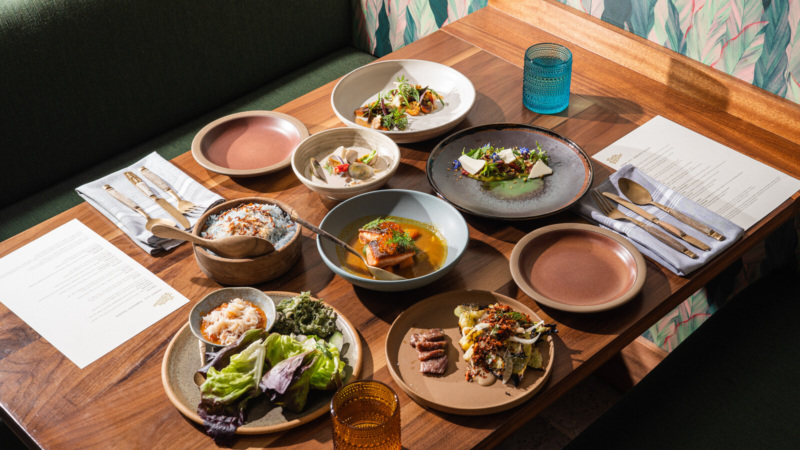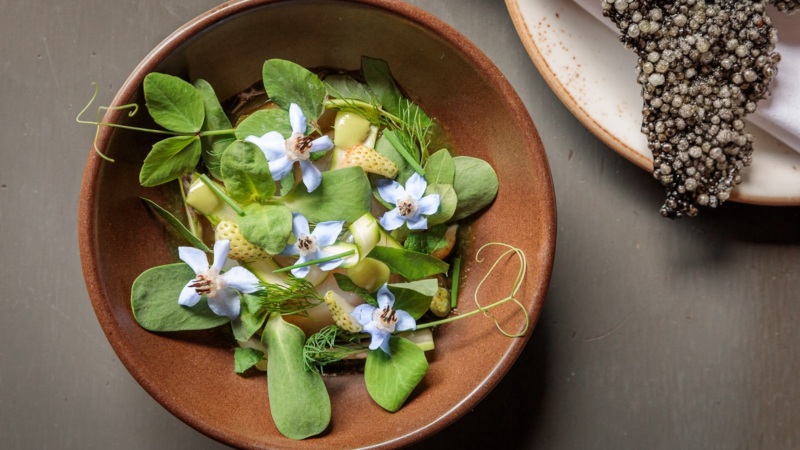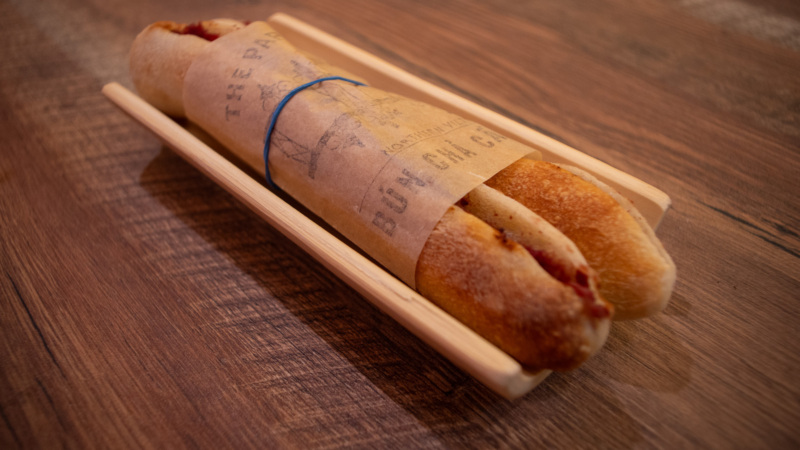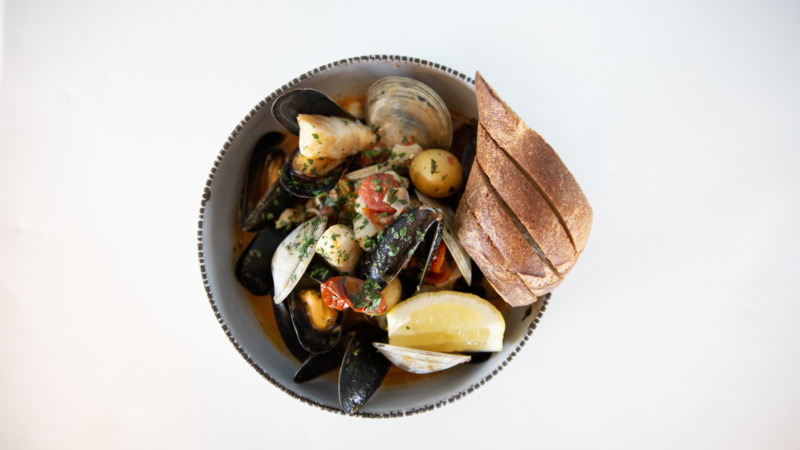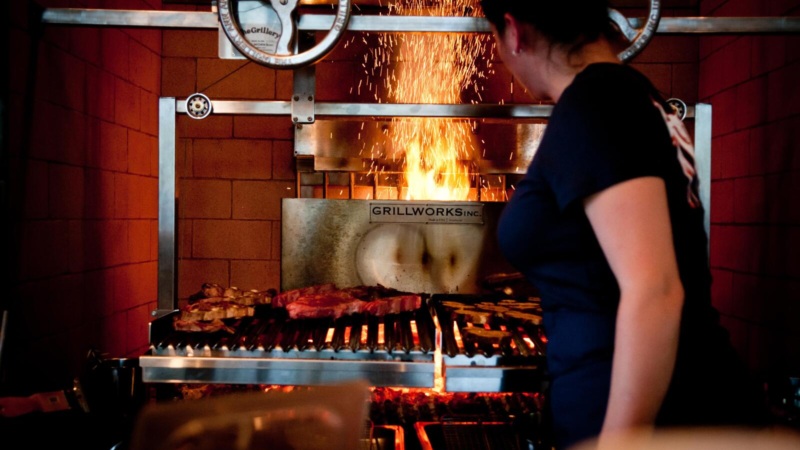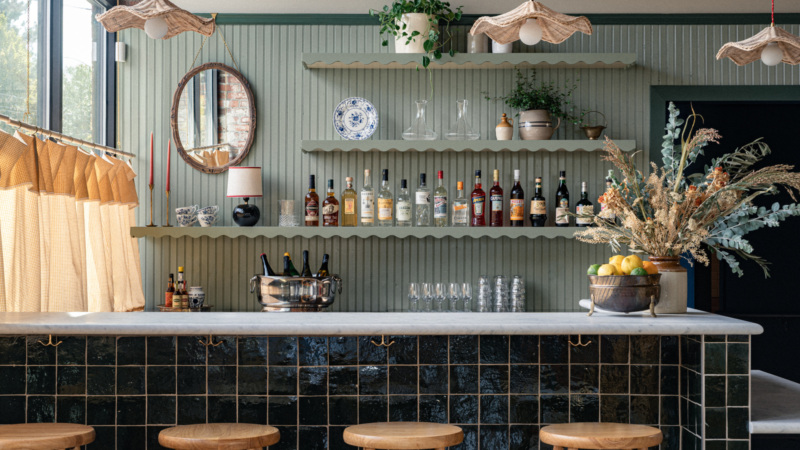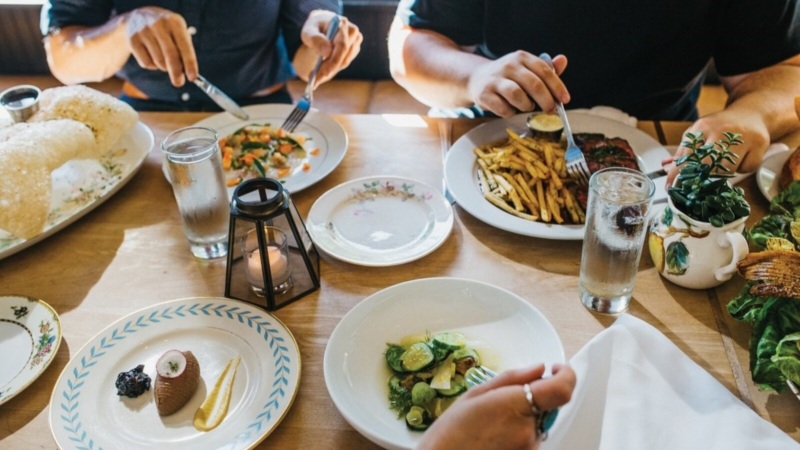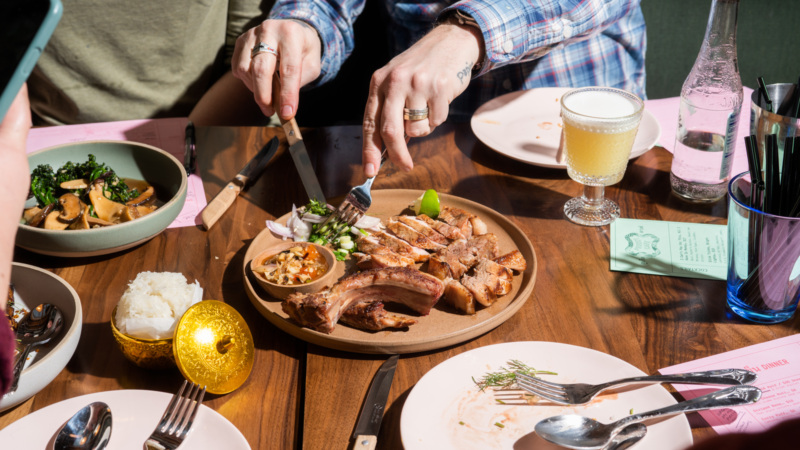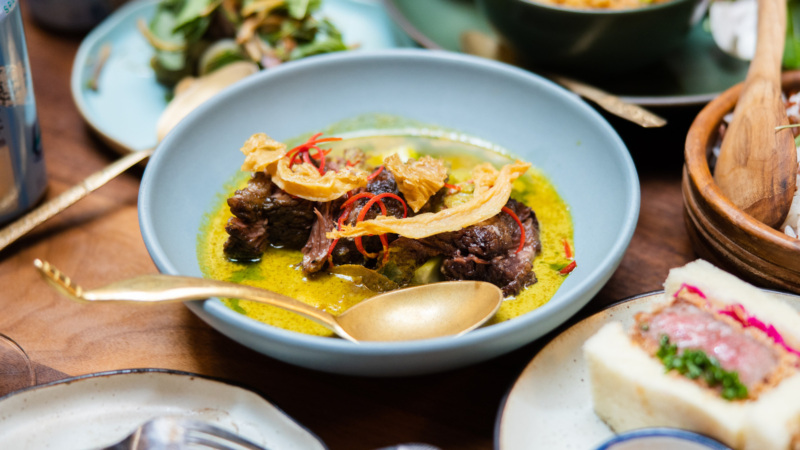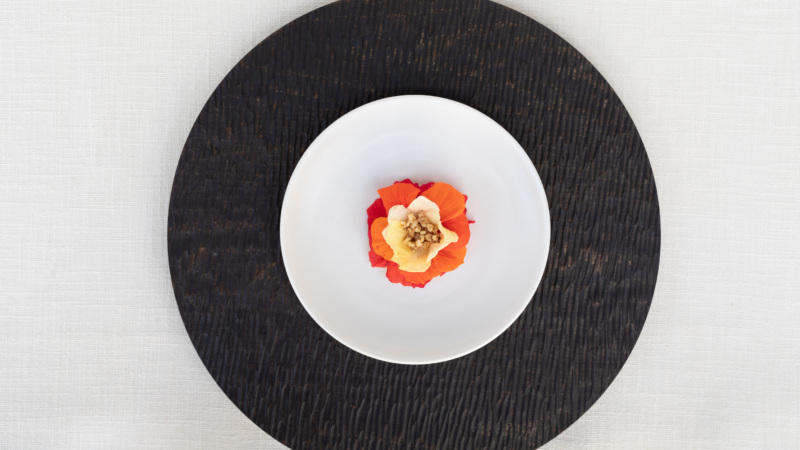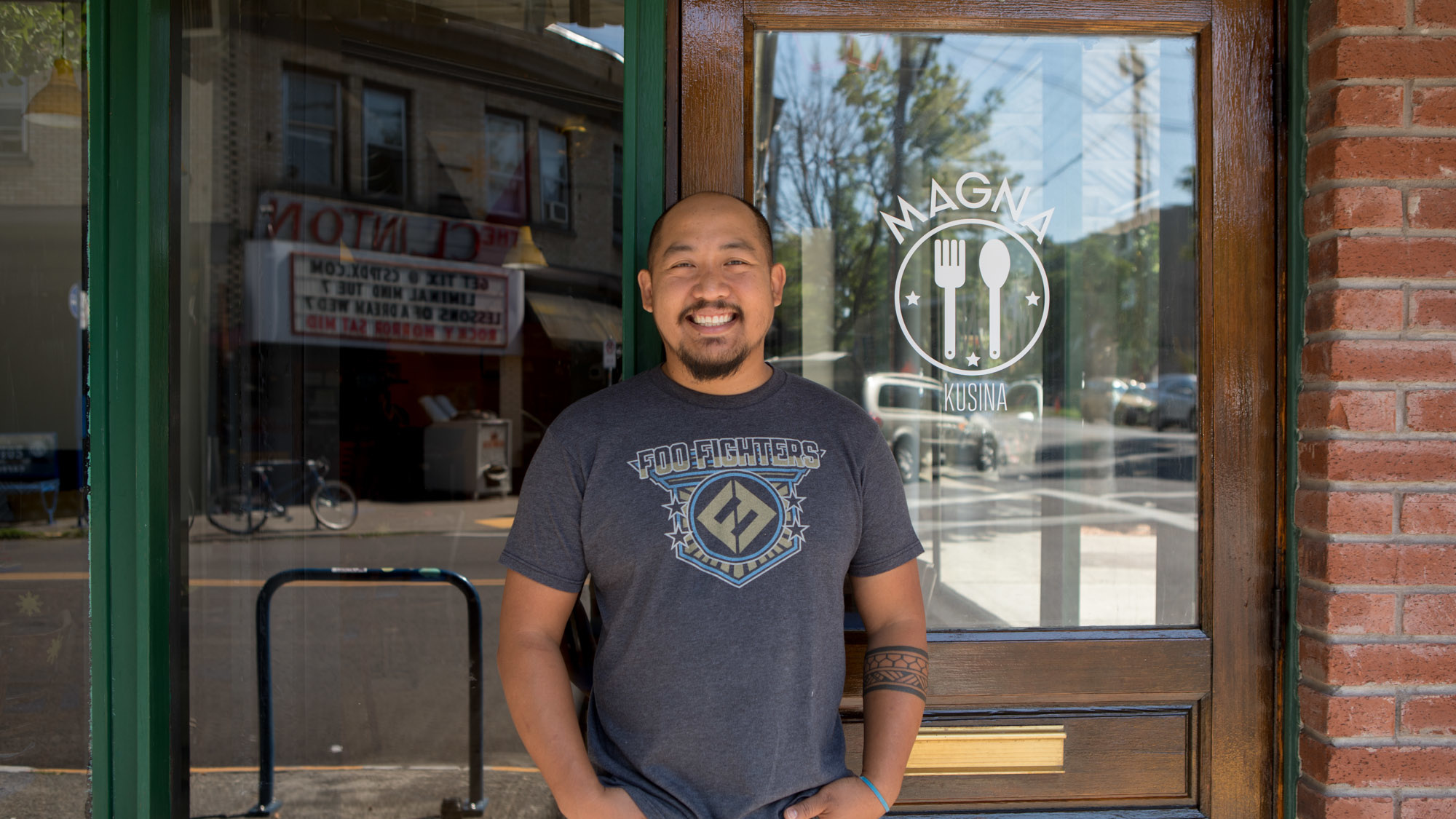
How One Portland Restaurant Made a Priority of Safety — and Comfort
It was only a day before Oregon’s statewide ban on on-site dining was announced that Portland’s newest Filipino restaurant, Magna, ended its brand new brunch service.
That same day, March 16, the restaurant pivoted to a takeout-only model, offering a short menu of fridge-stocking meals like pancit bihon, chicken adobo, and vegetable sides, alongside a trio of daily specials to help families and students meal plan.
But less than a week later, chef and owner Carlo Lamagna decided to stop takeout altogether to help flatten the curve against Covid-19, and ensure the safety of his workers and their families. The sudden switch illustrates concerns many restaurants faced: How do you pay bills and workers, and maybe help out those who’ve lost their job? More than that, how do you help those on frontlines of fighting the virus?
These were more than abstractions for Lamagna. The medical community is one particularly close to his heart, as he once worked in a hospital himself and his entire family still works in healthcare. His parents met while working as nurses before his father became a doctor; his sister and brother-in-law both work at hospitals; his brother is a physical therapist; and his wife is a mental-health practitioner. And the break was needed, providing a chance for he and his staff to process what was happening around them, to face their emotions.
“You kind of think, ‘Let’s just do this and we’ll figure it out along the way,’” Lamagna says. But during the two days between their last regular service, and the first day of the takeout experiment, they didn’t have time to slow down. “It was such a quick turnaround, we just didn’t have time to quote-unquote grieve, [to] accept that things are changing.”
Had they taken the time, Lamagna says, it would’ve given him and his staff a “better chance at not making it as hard.” Instead, they rushed headlong into reopening for takeout.
“We were so unsure of everything,” Lamagna says. “We just kept taking orders, running out of food. It was sloppy, and that’s not how we operate.”
A week later, Magna was closed again. It would be nearly a month before the kitchen started turning out food — and when it did, it was in a very different capacity. Lamagna spent the time refining the logistics of the restaurant, and renovating the kitchen — two essential tasks when workers need to maintain distance. As he now looks toward reopening, it has become clear that the time spent closed turned out to be a big help. It provided time to think about how to operate in a new normal.
This isn’t to say Magna wasn’t making food during the hiatus. Lamagna turned to the Portland chapter of national nonprofit Frontline Foods, and was soon cooking meals for hospital workers. That ultimately would provide a next step, one that would ensure his employees’ safety. The focus was, again, a personal one for Lamagna, given how much of his family works in medicine.
“How can I contribute? I think the best way I know how is to feed them,” he says. “A small part of their extremely insane days is to give them a little sliver of, ‘Ugh, I can have a hot meal.’
“The same reaction you long for when you’re serving in a restaurant is now blown up a million times in a hospital setting … It’s much more meaningful and impactful, and lets them know there’s somebody out there who knows and cares for them, and wants to take care of them, too.”
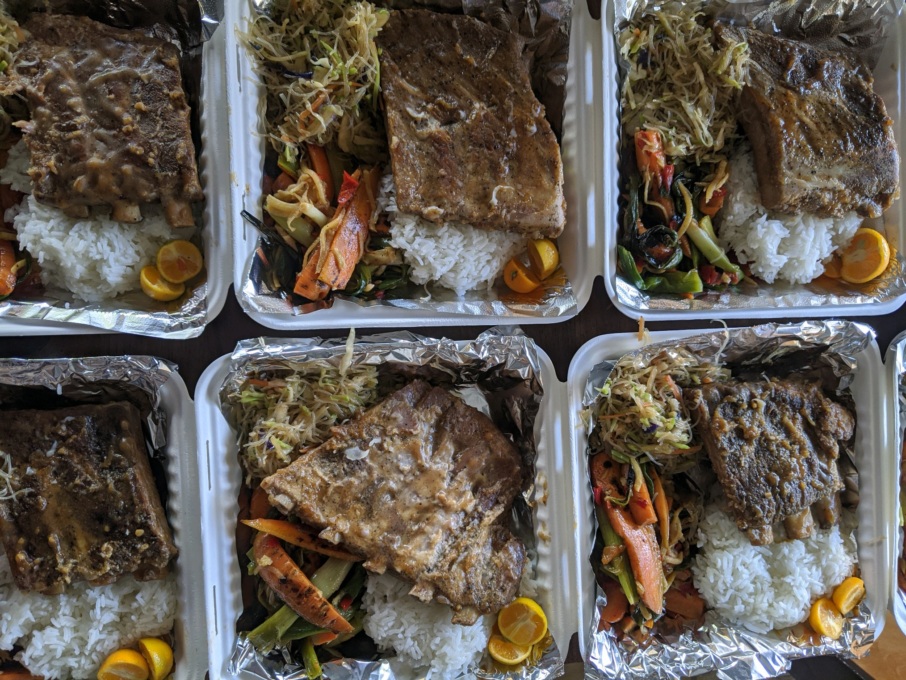
Coming back
But naturally, Lamagna also wanted to help the culinary community, which has been devastated in its own way. And in the end, that meant reopening.
Starting April 30, Magna will offer takeout three days a week, with a revised, fixed-price “meal-for-meal” model. It will work like this: Every Monday, the restaurant will release specific menus with the week’s $25 takeout box; each will include an appetizer, a main course and dessert, with a vegetarian/vegan-friendly option, giving diners a chance to try different parts of the menu, and giving Lamagna a chance to experiment with new dishes. A portion of the proceeds of each box sold will go towards providing meals to what Lamagna calls “frontline workers,” not just hospital staff but also grocery-store employees, all distributed by the Portland chapter of the National Alliance for Filipino Concerns.
The menus are, perhaps, a slightly more condensed take on the food Magna already was serving. The inaugural one will include an order of crab-fat pancit, the dry-fried noodles that nearly rival adobo in being considered a linchpin of the Filipino food canon; inihaw na baboy, grilled pork ribs marinated in RC Cola and soy sauce; and an order of biko with latik, steamed sticky rice with coconut jam. Diners need to order meals online, by email or by phone a day in advance for pick-up or potential delivery.
One of the biggest concerns, Lamagna now realizes, is preserving a safe workspace. Upon reopening, Magna will maintain a one-person kitchen as often as possible, he says. One cook will come into the restaurant on no-service days to do prep work; and another cook plus one front-of-house-slash-delivery person will work on days the restaurant is open, all in order to limit contact.
Eventually, Lamagna hopes to grow meal donations, but he plans to keep the medical community closest at heart, since it is the most personal of connections.
“That’s kind of where I’m at right now, focus on them first and foremost,” he says. “If they’re not healthy, no one else is gonna be.”
Samantha Bakall is a Chinese American writer based in Portland whose work has appeared in The Oregonian, where she covered food for four years; Eater; and elsewhere. Follow her on Instagram and Twitter. Follow Resy, too.

